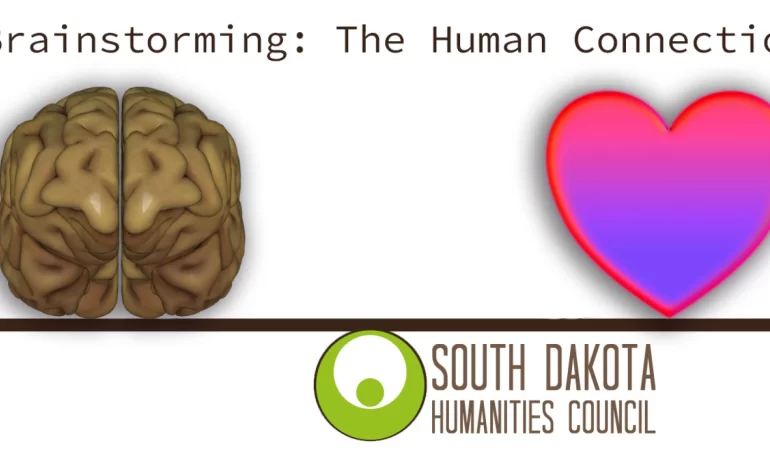Shaping Medical Humanities Research
“Shaping Medical Humanities in South Dakota,” a recently completed project funded by a $10,000 grant from the South Dakota Humanities Council, is what project director Peter Hoesing calls a “conceptual launchpad for the University of South Dakota’s emerging medical humanities program.” Medical humanities is a “multi-disciplinary, interprofessional field of inquiry driven by the notion that health professionals treat humans, not mere bodies,” according to Hoesing, a member of the ethics and humanities faculty at the University of South Dakota’s Sanford School of Medicine. The project was a collaboration
between Hoesing, also an SDHC scholar, and Ellen L. Schellinger, Director of the Sanford School of Medicine’s DeGroot Center for Bioethics, Humanities, and the Healing Arts. Ari Albright and Rebecca
Froelich of Creative Care, LLC also contributed to the project, specifically the arts component of data collection. The goal of the project was to create a needs assessment and an asset map to shape the
future of medical humanities in South Dakota. The project was completed and the Sanford School of Medicine now has a unified planning resource to guide the development of medical humanities programming in South Dakota. You can listen to recorded meetings discussing the project on https://listen.sdpb.org/healthcare/2022-01-04/how-can-the-study-of-humanities-change-the-practice-of-medicine-in-south-dakota and find an article about the project on https://www.yankton.net/community/article_44b20ad2-5fb1-11ec-9f39-b70a78656d47.html
As a member of the team, I was able to work with a diverse group of experts, including physicians, healthcare and health education administrators, community champions, academics, visual artists, arts administrators, arts in health professionals, music therapists, creative and expressive art therapists, institutions, arts organizations, museums, galleries, and practitioners of integrative and traditional medicine whose work intersects with art disciplines. The project aimed to bring together these different perspectives and disciplines to create a more holistic approach to medical education and healthcare in South Dakota.
The focus on medical humanities is driven by the belief that healthcare professionals should treat humans, not just bodies. By incorporating the arts, humanities and social sciences into medical education, we can nurture interpersonal skills, develop practitioner emotional intelligence and resiliencies, promote community engagement, and provide insight into the practice of medicine in modern healthcare.
Overall, the project was a great opportunity to bring together different fields of study and perspectives to create a more holistic approach to healthcare. I am excited to see the impact that this project will have on the development of medical humanities in South Dakota, and to continue to be a part of shaping the future of healthcare in the state.

